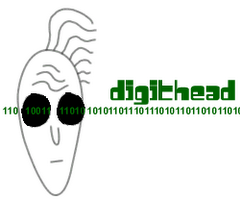Way back in December of 2008, Python 3.0 was released. Seven years later, Python 3 is finally gaining traction.
Why the wait? Broken backward compatibility? Lagging library support? Print's annoying new parentheses? Well, coders are a cranky lot, often not fond of change. Some even thought Python 3 would be the end of Python, suffering a fate similar to Perl 6. There was a bit of controversy:
- Pros and Cons about Python 3
- Python 3: threat or menace?
- the Gravity of Python 2
- Python 3 is killing Python
- Python 3 is fine
- Python 2.7 and Python 3 a sacred love story
The story holds some lessons.
Initially, the Python core developers seem to have imagined that people would take the plunge sooner or later, migrating to Python 3 and never looking back. But, there was something of a chicken-and-egg problem. Library maintainers were confronted with the unappealing prospect of supporting two code bases for some transition period of unknown duration. Python application developers were reluctant to upgrade until all their dependencies had made the move. Libraries and applications saw the majority of their peers waiting to upgrade. So, nothing happened. Python 3 adoption languished.
It took a while, but the Python community came up with a better solution. Tools like future and six enable a single code base to support both Python 2 and Python 3. Mostly this works by backporting the new Python 3 idioms to Python 2 allowing existing code to adopt new idioms at a measured pace while maintaining backwards compatibility. This strategy makes a ton of sense in a language as dynamic as Python. And with it, the deadlock was broken and migration could get underway. End of Life for Python 2 has been moved out to 2020, so those shims will be in place for a long time.
Contrast the Python 3 story with that of Java where a very high level of backwards compatibility is the standard. At this point, Java folks may be congratulating themselves on making the right call. But, backwards compatibility comes at a cost. There's no denying that those constraints have limited the evolution of the language. Java generics are marred by type erasure. Widely recognized warts in the standard libraries persist - for example, the inconsistency of string.length(), array.length, and collection.size(). Swing is as clunky as ever. Date support in the standard library has only recently been upgraded after years of criticism. Advanced practitioners like those behind Spring resort to esoteric means like byte-code manipulation to extend the capabilities of the language.
At the same time, the JVM became a laboratory for programming language design. Scala is essentially an evolved Java. Clojure brings LISPy metaprogramming to the JVM. These advanced JVM languages are a big influence on modern Java.
So, finally, Python 3 is humming along. The long incubation period has not been without advantages. Python 3.5 is very polished. Most promenant libraries support it. Usage is accelerating. Core developers promise Python 4.0 won't be like Python 3.0.
What lessons will the Python community and that of other technologies take away from the Python 3 experience? That breaking backwards compatibility is a terrible, terrible thing that should never be contemplated again? That's a progress limiting point of view. I hope there are lessons in how to manage substantial change and how to avoid fracturing the community in the process.
Careful attention needs to be paid to a smooth transition. Working code should continue to work while experiments continue to push forward with new and potentially better idioms. Those that offer a real improvement will, in time, take over, but gradually not as a step function. Periods of stability may alternate with accelerated change. End-users should be firmly in control of how cutting-edge they want to be. An essential ingredient is respect for differing rates of change, differing tolerance for risk, etc. There are those who thrive on the new and those who count on the tried and true. But, living breathing technologies need to evolve.
“In the long run every program becomes rococo, then rubble.”
...but not yet! ...can't wait 'til PyCon in a few weeks!









 R Bloggers
R Bloggers
No comments:
Post a Comment